
Pietro Rugolo, known professionally as Pete Rugolo, was an American jazz composer, arranger, and record producer.

Milt Bernhart was a West Coast jazz trombonist who worked with Stan Kenton, Frank Sinatra, and others. He supplied the solo in the middle of Sinatra's 1956 recording of I've Got You Under My Skin conducted by Nelson Riddle.

Something Cool is the debut solo album of June Christy. It was recorded in 1953, 1954, and 1955, and features Christy singing 11 jazz songs backed by the orchestra of Pete Rugolo, and her saxophonist husband, Bob Cooper. First issued in 1954 as a 10" mono LP, an expanded 12" mono LP was released the following year, with four newly recorded selections added to the track listing. In 1960, Christy and Rugolo re-recorded all 11 selections in stereo, so that a stereo version of Something Cool could be issued. For many years, this re-recorded version of the LP was the only one commercially available.
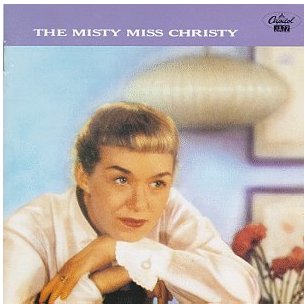
The Misty Miss Christy is a 1956 studio album by June Christy. Christy sings several jazz standards along with a few lesser-known tunes. Pete Rugolo arranged the songs and conducted the orchestra, which consisted of different combinations of musicians on different recording dates, with some overlap. The album was released on Capitol Records and reissued on Discovery Records. The CD was released on Blue Note Records.

Fair and Warmer! is a 1957 studio album by June Christy. The songs were arranged by Pete Rugolo, and players on the record include trumpeter Don Fagerquist, trombonist Frank Rosolino, altoist Bud Shank, and tenor saxophonist Bob Cooper ; none of the notable musicians were credited in the album's brief liner notes. The record peaked at #16 on the Billboard Pop Music Charts.
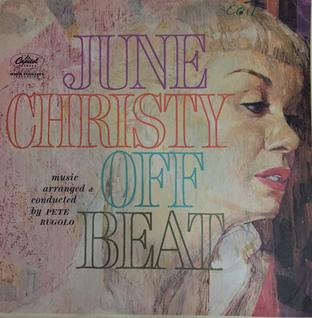
Off-Beat is a 1960 album by American jazz vocalist June Christy, arranged and conducted by Pete Rugolo.
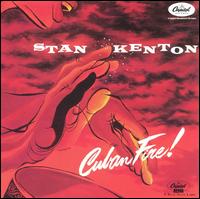
Cuban Fire! is an album by Stan Kenton and his orchestra released in 1956 by Capitol Records. This was Stan Kenton's big band's first full-length recording of Afro-Cuban-styled music. The LP charted for four weeks in Billboard starting on September 15, 1956, peaking at #17. The concept of the original 1956 recording centers on the Cuban Fire! suite Kenton had commissioned from composer Johnny Richards. The 1991 CD re-issue is augmented with one extra track from the 1956 sessions and five cuts recorded four years later by the first of Kenton's mellophonium orchestras.
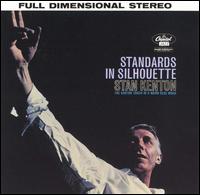
Standards in Silhouette is an album recorded in September 1959 by Stan Kenton and his orchestra. The entire set of arrangements for the LP were written by Bill Mathieu. This recording stands alone in approach and style; Kenton himself only plays on "Django" and every standard is done at a slow, ballad tempo with very sparse, effusive writing.

City of Glass, an album originally issued as a 10" LP by Stan Kenton, consists entirely of the music of Bob Graettinger. The original album has been reconstituted in different LP re-issues, and the entire set of Kenton/Graettinger Capitol Records sessions is on the digital CD City of Glass.

Adventures in Jazz is an album by the Stan Kenton Orchestra, recorded in late 1961 but not released until about a year later in November 1962. The album won a Grammy Award in the category for Best Jazz Performance – Large Group (Instrumental) category in 1963. This would be Kenton's second Grammy honor in as many years, the first being Kenton's West Side Story winning the Best Large Jazz Ensemble Album in 1962. Adventures In Jazz was also nominated for Best Engineered recording for the 1963 Grammys. The 1999 CD re-issue of Adventures In Jazz is augmented with two alternate takes from the original recording sessions and one track from Kenton's release Sophisticated Approach.

Kenton's West Side Story is an album by the Stan Kenton Orchestra recorded in 1961 and released by Capitol Records. It won the Grammy Award in 1962 for Best Jazz Performance – Large Group (Instrumental). The album was recorded in 1961 and released quickly to take advantage of the movie premiere of the musical West Side Story. Kenton won his first Grammy Award and he won again the next year in the same category with Adventures in Jazz. Kenton's West Side Story peaked at No. 16 on the Billboard magazine album chart.
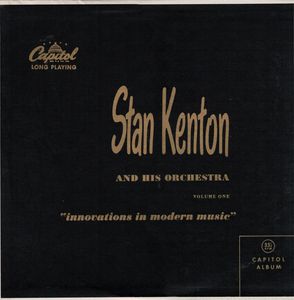
Innovations in Modern Music is an album by pianist and bandleader Stan Kenton with his "Innovations" Orchestra featuring performances recorded in 1950 and originally released on the Capitol label.
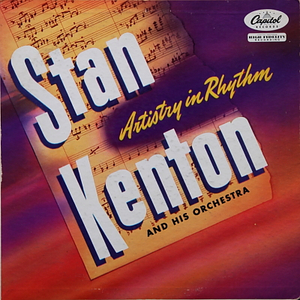
Artistry in Rhythm is an album by pianist and bandleader Stan Kenton featuring performances recorded in 1946 and originally released on the Capitol label as four 78rpm discs, reissued as a 10-inch (25 cm) LP in 1953, and then as a 12-inch (30 cm) LP in 1955 with additional tracks.
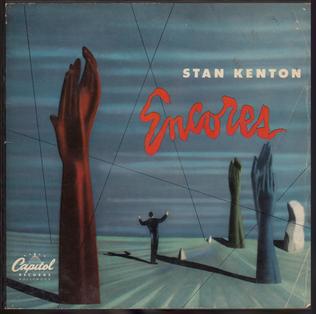
Encores is an album by pianist and bandleader Stan Kenton featuring performances recorded in 1945–47 and originally released on the Capitol label as three 78rpm discs in 1949, reissued as a 10-inch LP in 1950, and then as a 12-inch LP in 1955 with additional tracks.

A Presentation of Progressive Jazz is a 1948 jazz album by pianist and bandleader Stan Kenton.
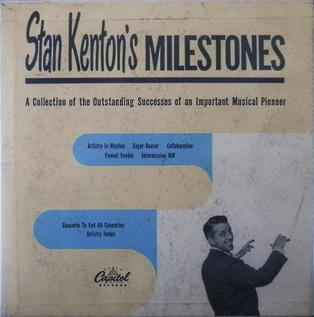
Stan Kenton's Milestones is an album by pianist and bandleader Stan Kenton compiling performances recorded between 1943 and 1947 and originally collected on the Capitol label as a 10-inch LP in 1950 then reissued as a 12-inch LP with additional tracks in 1955.

Kenton in Hi-Fi is an album by bandleader and pianist Stan Kenton featuring performances of Kenton's signature compositions from the 1940s recorded in 1956 and released on the Capitol label. This album was re-released as 'Kenton in Stereo' in 1959. A 7-1/2 i.p.s.stereo reel tape - Catalog no. ZDS -10 - was recorded by Capitol and released in 1956. Apparently the stereo mix for the reel tape is unique, but the same stereo master tape was probably used for the stereo vinyl LP record.

The Kenton Era is a compilation album by pianist and bandleader Stan Kenton featuring recordings from 1940 to 1954 which was originally released in two limited edition box sets, as fifteen 7 inch 45 rpm discs and four 12 inch LPs, on Capitol in 1955.

Stan Kenton Classics is an album by pianist and bandleader Stan Kenton compiling performances recorded between 1945 and 1947 and originally collected on the Capitol label as a 10-inch LP in 1950 then reissued as a 12-inch LP with additional tracks in 1955.
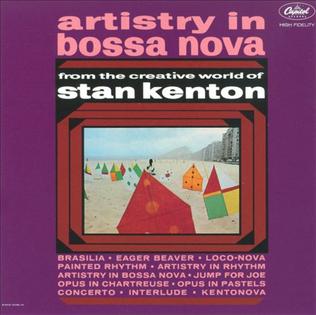
Quantity:




















